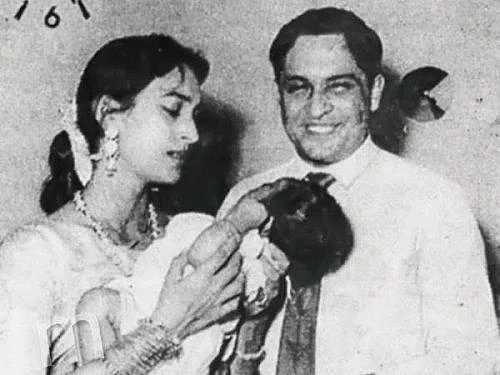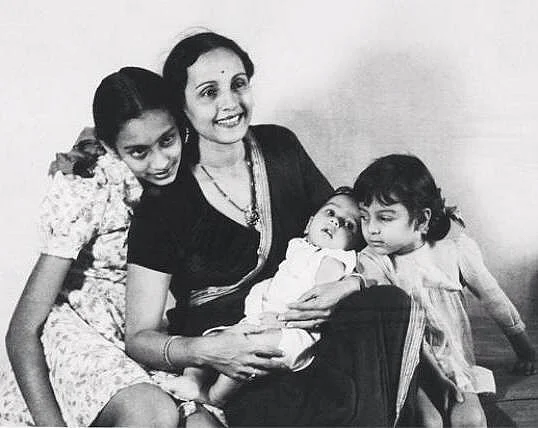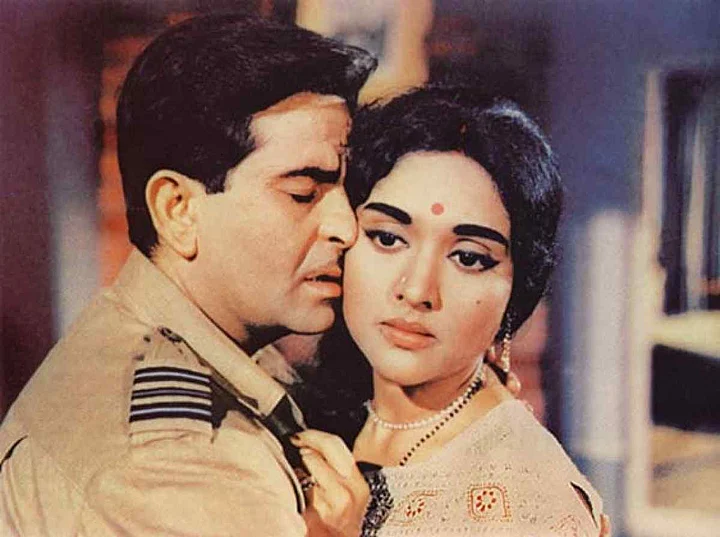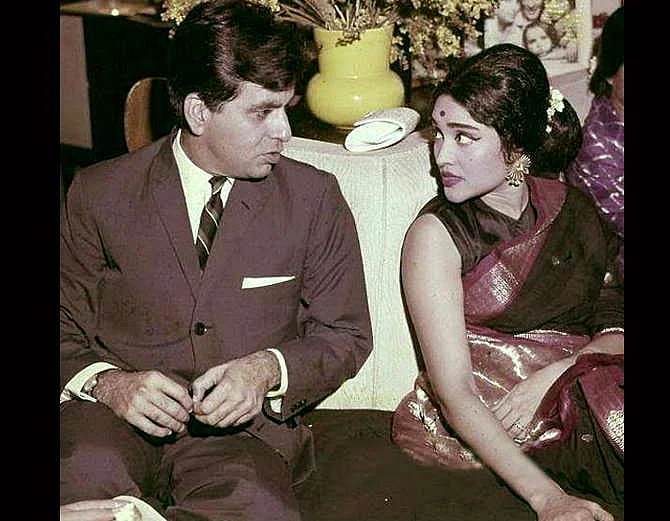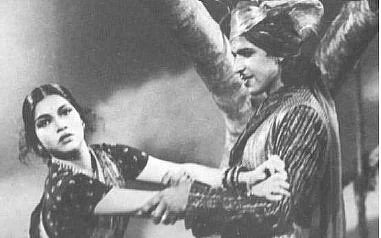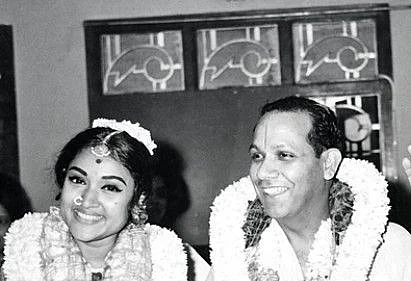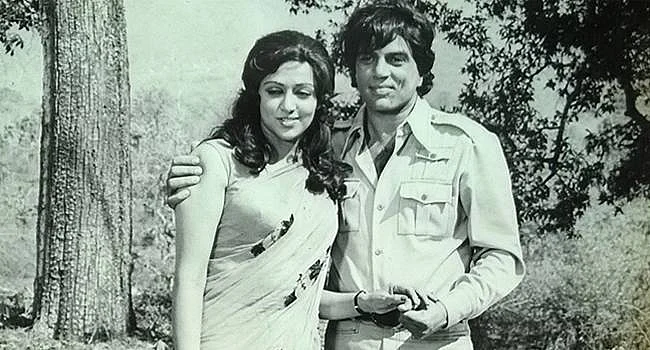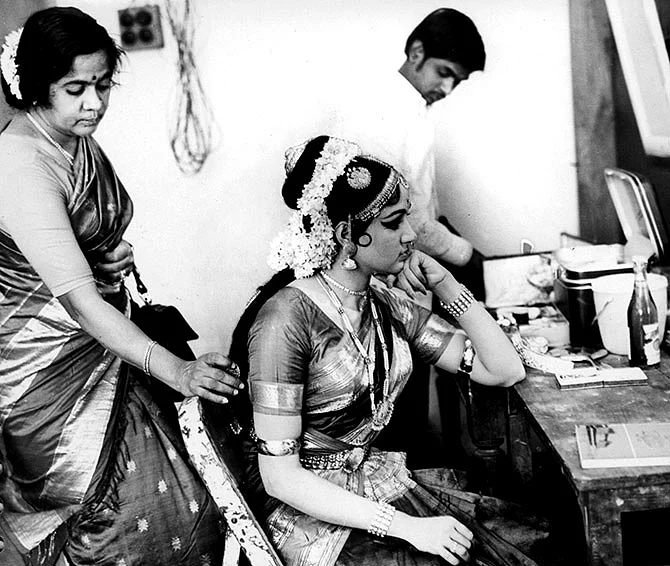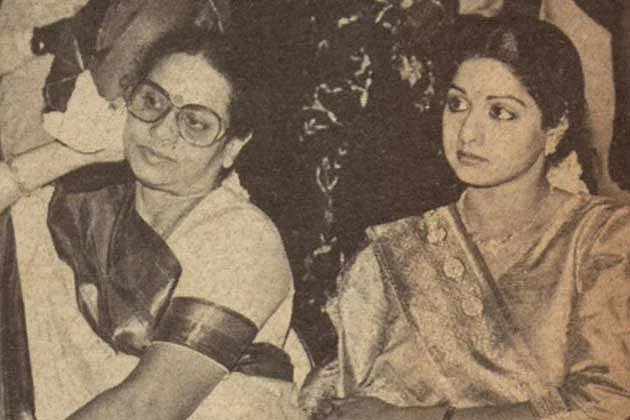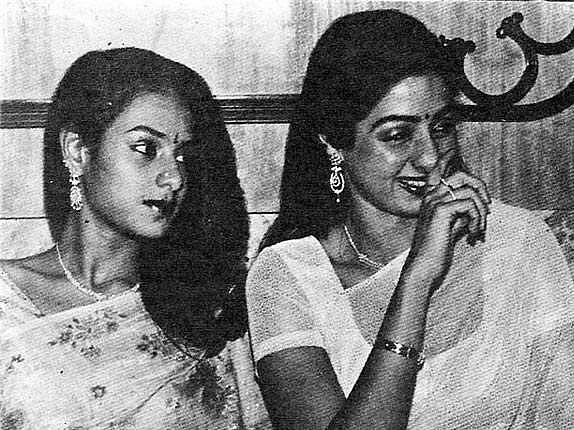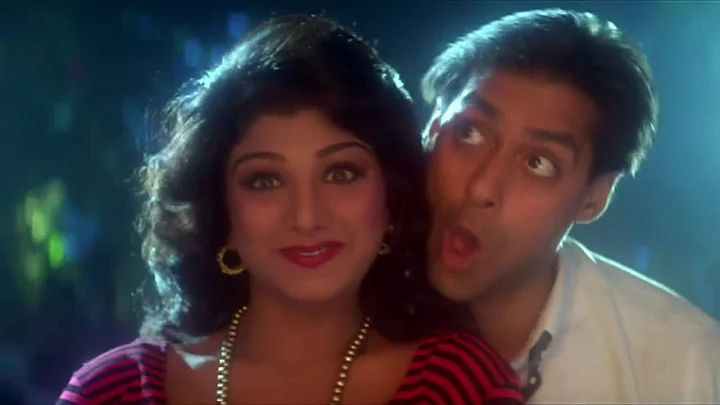The lives and careers of countless film celebrities would have been diametrically different if their parents hadn’t been pushy to the point of unhappy endings.
Lately, the child superstar of the 1950s, Daisy Irani spoke out against the memory of her mother Perin, who was hell-bent to make her daughters (the other being Honey Irani) slog around the clock at the film studios instead of ensuring that they received a school education.
At the age of 67, Daisy Irani has stated categorically that she was raped by her guardian who had accompanied her to a film shoot in Chennai, in a hotel room when she was six years old.
There have been countless real-life stories which have been as heartbreaking and tragic as the child superstar’s. None of these were disclosed though. Like it or not, you have to accept the fact that right down from legendary heroines to queens of the marquee – dominated beyond belief by their parents – opted to suffer in silence. Forget the likelihood of a #MeToo movement in Bollywood ever, the mantra is to move on. Wounds heal. Or do they?
It is essentially through movie lore and newspaper reports that the repressed anguish and hurt of iconic heroines are remembered and regretted by nostalgiaphiles as well as the millennials right down to this day.
Without a doubt, the story of Madhubala has assumed the dimensions of an epic tragedy. The ethereal heroine could have been Dilip Kumar’s begum, if her self-serving father Ataullah Khan hadn’t thumbed down their love story.
Her plight isn’t apocryphal or fiction. In cold print, it has been chronicled that during a legal face-off relating to Madhubala’s commitment to BR Chopra’s Naya Daur (1957), Dilip Kumar had confessed he was in love with his heroine but in the same breath, threw in his lot with Chopra. Earlier Ataullah Khan had disapproved of Premnath because of their different faiths.
Dilip Kumar’s autobiography, The Substance and The Shadow, hedges that story though. By contrast, Dev Anand in his book, Romancing with Life, was candid enough to confirm that his proposal to the singer-actress Suraiya was shot down by her autocratic grandmother Badshah Begum.
Although the 1950s are justly rated as the Golden Decade of Hindi Cinema, it was also an era when parents, blinded by the prospects of making big money, hustled their children into the inhumane requisites of filmmaking: interminable working hours, rank chauvinistic attitudes and adapting mentally to roles, be they precocious or larger-than-life to the point of being absurd.
Ineluctably, the psychological damage has to be swept under the carpet. The spells of depression, the feeling of isolation, the sense of freedom or the lack of it and the stasis on attaining belated independence – can these ever be resolved? Not likely.
It is no secret that Meena Kumari, who started off as a child artiste, was a puppet in the hands of her father Ali Baksh, associated with Parsi theatre. Bullied without any let-up, in most cases, on growing up a child actor seeks the first route out: marriage, explaining perhaps her impetuous nikaah with the much-older producer-director Kamal Amrohi.
Within a few years, the alliance hit the rocks, turning the supreme actress into a Tragedy Queen, both on and off the screen.
Moving on to the 1960s, the status quo persisted. No respite, once a child star, always a star, more out of necessity than choice. The laments of not being ‘normal’, of serving as a milch-cow were never been stated on record by Nanda, the princess of romance. However, behind her infectious smile on screen, there was the burden of serving as the sole provider of her six siblings and their mother Meenakshi Karnataki. While advancing into middle-age, she did accept a marriage proposal from the much-in-love Manmohan Desai but backed out at the nth hour.
During the ‘60s, the movies moved from black-and-white to Eastman colour. Off-screen, the parent trap stayed as bleak as ever. Indeed, are any of the yesteryear heroines willing to open up about the parental domination?
Cautiously Asha Parekh does, admitting that her mother, Sudha, was “strong-willed.” The super-heroine of the 1960s didn’t marry her grand amour, Nasir Hussain, under the dread of invoking her wrath. The producer-director, wary of her mother, never proposed to Asha Parekh. “That’s just as well,” she adds. “As a woman alone, now, I can take my own decisions.”
No generalisation this. On occasion, marriage can be a form of rebellion against a parent. Case in point: After her marriage to the naval Lieutenant Commander Rajnish Behl in 1959, Nutan filed a legal case for ‘mismanagement of funds and property’ against her mother, the charismatic actress Shobhana Samarth. Although there was a reconciliation, a certain melancholia persisted to her last days.
Cut next to the phenomenon which tongue-in-chic magazines of the bygone era, called the ‘Ammas’, since their origins were in south India.
As protective as a tigress to her cubs, enveloped in silks and shielding their eyes with dark glasses, the star ‘Amma’ would try to keep men at bay (not too successfully), negotiate contracts and fees ably, and invest the earnings into property.
The first of the no-nonsense Amma was none other than the Tamil actress Vasundhara Devi who constantly chaperoned Vyjayanthimala. The vigilant one couldn’t keep Vyjayanthimala leashed forever though. As her popularity escalated, she was involved in liaisons with Dilip Kumar and then Raj Kapoor but rushed into a marriage with Dr Chamanlal Bali in 1968. Amma’s hold on her was firm but then something’s gotta give.
- 01/04Vyjayanthimala with Raj Kapoor. (Photo courtesy: Twitter)

- 02/04Vyjayanthimala and Dilip Kumar.(Photo courtesy: Twitter)

- 03/04Vyjayanthimala’s mother and Tamil actress Vasundhara Devi.(Photo courtesy: Pinterest)

- 04/04Vyjayanthimala and husband, Dr Chamanlal Bali.(Photo courtesy: Pinterest)

There are quite a few instances on the lines of Vyjayanthimala – young women who at an impressionable age crossed over from south of the Vindhyas to establish themselves in the Hindi language firmament. Curiously, potential heroines from Chennai were much-wanted, never the heroes.
At the age of 15, Rekha was coaxed into Bombay cinema by her mother. Tricked into a widely-publicised kiss with Biswajeet for Anjana Safar (1969). The reluctant debutante, daughter of actress Pushpavalli and thespian Gemini Ganesan, however, adapted to the Bollywood scene with a native intelligence.
If there were reports about an attempted suicide, Rekha supported by her co-star Vinod Mehra, rebutted them with the claim that she had accidentally swallowed a cockroach in her idli sambhar meal.
The southern influx was on and how. Hema Malini’s mother Jaya Chakravarthy, remembered as the most formidable ‘Amma’ of them shadowed her daughter at the studios, till enough was enough. The dream girl ended what could have been an ongoing nightmare, by marrying the already married Dharmendra.
Once in a rare while, moms from Madras could keep themselves low-key and level-headed in Bombay. The star power of Jayalalithaa, who went on to scale incredible heights by becoming the Chief Minister of Tamil Nadu, is believed to have been chess-boarded by her mother actress Vedha aka Sandhya. But when the daughter’s only Hindi film, Izzat (1968), tanked, it was bye bye Bollywood.
Shifting base from the relatively sedate Chennai to the hurricane-paced Bombay was always a concern for the mothers. The crossover had to be made, all-India fame and vaster fortunes were to made in the B-showtown, the perilous waters had to be tested.
Hello Bollywood it was for Sridevi, thanks to the relentless drive of her mother, Rajeswari Yanger.
The angel-faced moppet began acting at the age of four, became Bollywood’s No. 1 heroine during the mid-1980s and much of the ‘90s.
Apparently, it wasn’t all about loving the family altruistically. Sridevi filed a legal case against her sister Sreelatha for the misappropriation of her savings.
- 01/02Sridevi with her mother, Rajeswari Yanger.(Photo courtesy: Pinterest)

- 02/02Sridevi and sister Sreelatha.(Photo courtesy: Pinterest)

The late Sridevi will be always remembered and saluted. As for the multi-lingual actress Rambha, who’s that, you might ask? Answer: she’d fetch up under the unblinking eye of her mother Usha Rani, to shimmy and shine with top actors like Salman Khan in Judwaa (1997) and Anil Kapoor in Gharwali Baharwarli (1998). Her foray into B-town was short-lived, so was her mother’s control. Some eight years ago, she married the chief executive officer of a kitchen appliances firm and moved to Toronto.
Of course, there’s a flip side to the epic parent-trap story. Parents can’t be tarred as arch-villains without taking into account the fact, that if it wasn’t for them, their children would have never tasted that rare elixir of fame and fortune. Yet, the larger picture, points towards another inescapable fact that lamentably this was at the cost of a mangled childhood.
Like it or not, any child who’s brought up as goose which lays the golden eggs, cannot look back at the glory days without deep-rooted anguish. To come back to B-town, Sarika introduced as a child star after being escorted to a talent contest actually meant for adults, didn’t have it easy with her mother Kamal Thakur, either.
Kimi Katkar, whose ever vigilante mother Tina Katkar, seemed to monitor her every breath, was relieved to quit, marry and become a mother, never to attempt a comeback.
Incidentally, the theme of the psychological trauma alloyed to stardom has been narrated only once, no-stops-barred by Bombay’s cinema. Back in 1958, quite ironically Nutan portrayed a young woman subjected to despicable exploitation by her extended family.
Titled Sone ki Chidiya, the film was written by Ismat Chughtai, directed by Shaheed Latif and co-starred singer-and-occasional actor Talat Mehmood. Unfortunately, the black-and-white Chidiya was a commercial disaster. Surprisingly, the critique of the ways of the film industry, hasn’t ever been revalued or remembered except for its music score.
While Shaheed Latif’s film had hard-edged points to advance, by comparison Ram Gopal Varma’s Mast (1999) on the golden goose syndrome, was an exercise in futile flippancy. Through Urmila Matondkar, Varma made a hash out of what he could have kidded himself, was a case study of Sridevi.
“The first signs of changeover came with the entry of the heroines who had graduated from the Film and Television Institute of India, Pune. Shabana Azmi and Jaya Bhaduri effectively made their own decisions. Zeenat Aman and Praveen Babi were regarded as the epitome of cool. If parents had their say in other cases, it was essentially from the sidelines.”Asha Parekh
Hang on. Sidelines or arm-support? Rani Mukherji’s mother, Krishna, was by her beti’s side right till the star’s marriage to Aditya Chopra.
On another plane altogether, most would agree that it took some gumption on the part of Babita Kapoor, who gave up her own career when she married Randhir Kapoor. After their separation, she groomed her daughters Karisma and Kareena Kapoor, making them the first girls from the RK clan to join the film industry.
Today, Priyanka Chopra is producing films in partnership with her mother, but takes her own calls. A-listers Deepika Padukone, Katrina Kaif, Sonam Kapoor, and Alia Bhatt aren’t tied to any kind of apron strings either.
The scene has altered perceptibly. Parents, per se, aren’t the total dictators of dreams any longer. Alas, there’s a darker side to the new moon as well. Corporate-style agencies have become the surrogate parents. You can’t reach a top-rung Bollywood star – female or male – without jumping through hoops.
The one-liner “Ask mummyji” once intoned coyly by the heroines has been replaced by secretaries on cellphone drawling, “Wait, I’ll give you the agency’s number.”
Evidence: Some four years ago when Tiger Shroff still had to make his debut with Heropanti, his congenial mother, Ayesha Shroff, SMS’ed me the number of the top honcho of a talent management agency. Next: Mr Honcho wouldn’t pick up calls. A maze of assistants did. No surprise that.
The phenomenon of control-freak parents may be a thing of the past. Talent management agencies and secretaries are the millennial moms and pops. And so the Bollywood story continues with a new twist in the content.
(The writer is a film critic, filmmaker, theatre director and a weekend painter.)

